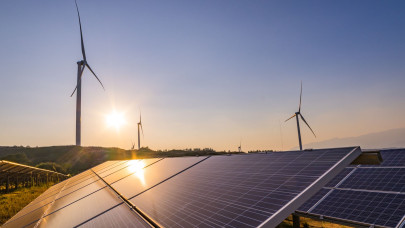“Nuclear energy currently supports 20% of Romania's energy needs and represents for Romania a strategic option to ensure decarbonization, energy stability, energy independence and strengthen the energy infrastructure of Romania with significant macroeconomic effects. In this sense, we are developing the nuclear energy program that will increase the nuclear energy production capacity in Romania by 133%, at the level of 2030/2031, by extending the life of Unit 1 by another 30 years, given the benefits of nuclear power plants refurbishments - another 30 years of clean, reliable and affordable energy, developing the Units 3 and 4 Project, deployment of small modular reactors power plant, with multiple social – economic benefits and which can position Romania as a regional leader. Our nuclear energy program can be a successful example for other countries willing to begin and expand their nuclear energy program. We are happy to join the Industry Pledge, share our expertise, and inspire other countries as well”, said Cosmin Ghita, CEO of Nuclearelectrica.
Since 2000, nuclear generation has supplied, on average, 2,500 TWh of electricity each year. Worldwide, nuclear reactors now supply around 10% of the world's electricity, and around one-quarter of all clean, low-carbon electricity in the world. But with electricity demand expected to increase, nuclear needs to grow faster, and this is possible only with a strong commitment and cooperation from governments and industry players.
”Through their decisions at COP28 and their national policies, governments can create the enabling policy environment that will support a greater contribution from nuclear energy to climate change mitigation. By ensuring nuclear has access to climate finance equal to other clean energy sources, governments can enable nuclear capacity deployment at scale worldwide. With a strong collaboration with governments around the world, the nuclear industry will be responsible for the implementation of such policy objectives, through the construction and operation of existing and new nuclear plants, support facilities, and related technologies”, according to the company.
On December 2nd, at the annual United Nations Climate Change Conference (COP28), which takes place in Dubai from 30 November to 12 December 2023, the Net Zero Nuclear Initiative and the Ministerial Declaration to triple nuclear capacity by 2050, which recognizes the key role of nuclear power in achieving net zero targets globally.
The ministerial declaration recognizes the key role of nuclear energy in achieving global net zero. It recognizes that analyses by a range of expert bodies have shown that global nuclear capacity needs to triple by 2050 to achieve global net zero. The declaration recognizes that nuclear energy has a small land footprint and can partner well with renewable generation. It also recognizes nuclear energy's role in decarbonizing hard-to-abate sectors. The declaration recognizes the importance of financing and political commitment to keep the global temperature below 1.5℃.
In this context, the signatories commit to work together to promote a global goal of tripling nuclear power generation capacity from 2020 to 2050 and to act to ensure that nuclear power plants are operated safely, respecting the highest standards of safety, sustainability, and non-proliferation. The signatories also commit to mobilize investment in nuclear energy and support the development and construction of nuclear reactors, such as small modular reactors and other advanced reactors for power generation, which also have other industrial applications for decarbonization. The signatories recognize the importance of developing resilient supply chains. The signatories recognize the importance of extending the lifetime of existing nuclear power plants and are committed to supporting responsible nations that wish to develop and implement new civilian nuclear programs.
The national company "Nuclearelectrica" SA is the Romanian national electricity, heat, and nuclear fuel company operating under the authority of the Ministry of Energy, with the Romanian state holding 82.49% of the shares and the other shareholders 17.50%, after the listing of the company on the stock exchange in 2013.
The energy producer owns two branches: CNE Cernvoda (Cernavoda Power Plant) branch, which operates two CANDU nuclear units, which are two of the most efficient units among more than 400 nuclear power plants in the world, and FCN Pitesti – a nuclear fuel plant. The company has achieved an integrated fuel cycle through the acquisition of a uranium concentrate processing line to support the company's long-term investment projects.
Nuclearelectrica is contributing more than 18% of nuclear energy to total energy production and 33% of total CO2-free energy production in Romania.













